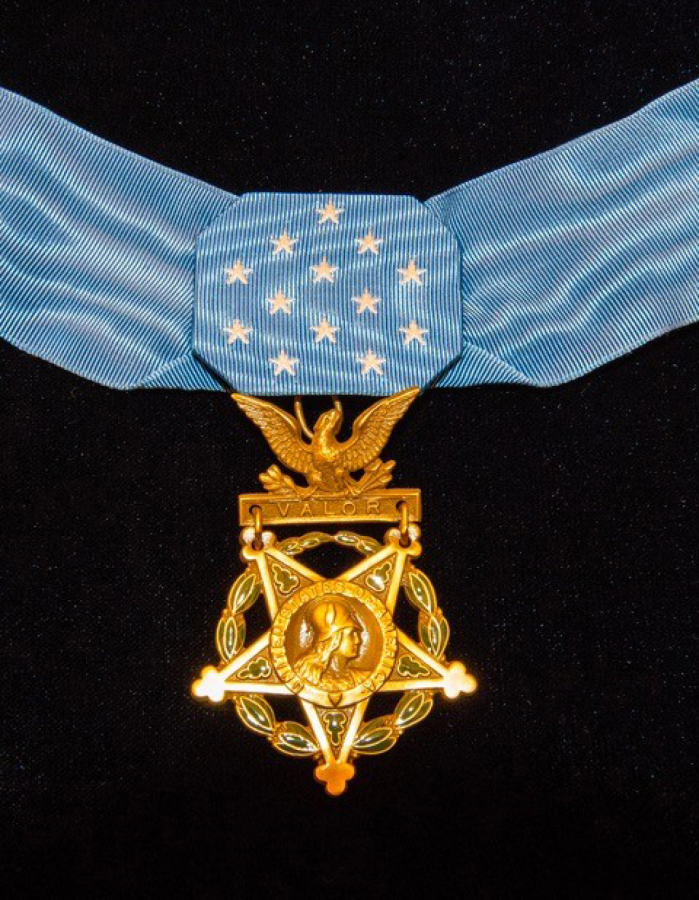Near Interstate 5’s ramps to Fourth Plain Boulevard, a steel and stone fence surrounds four Medal of Honor recipients resting under the Vancouver Barracks Cemetery grass. They are among the 3,511 receiving the award.
Today, the Medal of Honor, the highest honor the United States grants for valor in combat, is sparingly awarded. Few know it didn’t start as an esteemed award but something humbler — a reenlistment incentive.
Fearing troops would go home rather than fight Confederates, President Abraham Lincoln offered the Medal of Honor as an inducement for re-upping. In 1861, when it was announced, just 300 re-enlisted. During the Civil War, 1,522 soldiers received the medal. A staggering 864 went to the noncombat 27th Maine Volunteer Infantry, a unit about to muster out five days before one of the war’s most significant battles — Gettysburg.
In 1861, William Wallace McCammon, 23, joined an anti-Confederate guard unit from Missouri, then the Union Army. A combatant in several battles, he earned the nation’s highest honor at Corinth, Miss., in 1862. Although safe behind the lines, McCammon assumed command when his company commander was hospitalized. His company’s bayonet charge turned the tide but cost 14 men. While he received the Medal of Honor, it wasn’t issued until 1896. He served at the Vancouver Barracks and in the Philippines before his death in 1903.
Lying about his age, James Madison Hill ran away from home to fight in the Civil War. He left the Army in 1865, only to return in 1867. The Army sent his unit to fight Apaches in Arizona. Pursuing them in 1873, he fought at Turret Mountain. He and two others in Company A received the Medal of Honor for gallantry in action. In 1899, he ended his career as a commissary sergeant at the barracks. In 1919, he died. Hill, his wife and son are interred in the post cemetery.
Herman Pfisterer left the plumbing trade in 1886 for that of an Army bugler. In 1898, his regiment was sent to Cuba. After landing, it pushed on to San Juan Hill. Along the way, his company, under intense Spanish fire, retreated to a cluster of trees, leaving two wounded in a field. Pfisterer and five soldiers grabbed stretchers and retrieved the men under hostile fire. He received the Medal of Honor in 1899. He moved with the 7th Infantry Regiment to the Vancouver Barracks in 1900. His award was misdirected to the Philippines and then forwarded to Vancouver. He died in 1905.
After the Civil War ended, Moses Williams, an African American, joined the Army, which assigned him to a Black cavalry regiment. The Buffalo Soldiers were in the Cuchillo Negro Mountains of New Mexico when part of his company engaged Apaches in a firefight scaring off their white lieutenant’s horse. Three men were pinned down between the two sides. The lieutenant ordered a soldier to get the wounded while he and Williams drew enemy fire. For his fearlessness, Williams received the Medal of Honor in 1890. But it never arrived. In 1896, Williams appealed to President Grover Cleveland to obtain his medal. In 1899, he died in Vancouver.
Martin Middlewood is editor of the Clark County Historical Society Annual. Reach him at ClarkCoHist@gmail.com.



